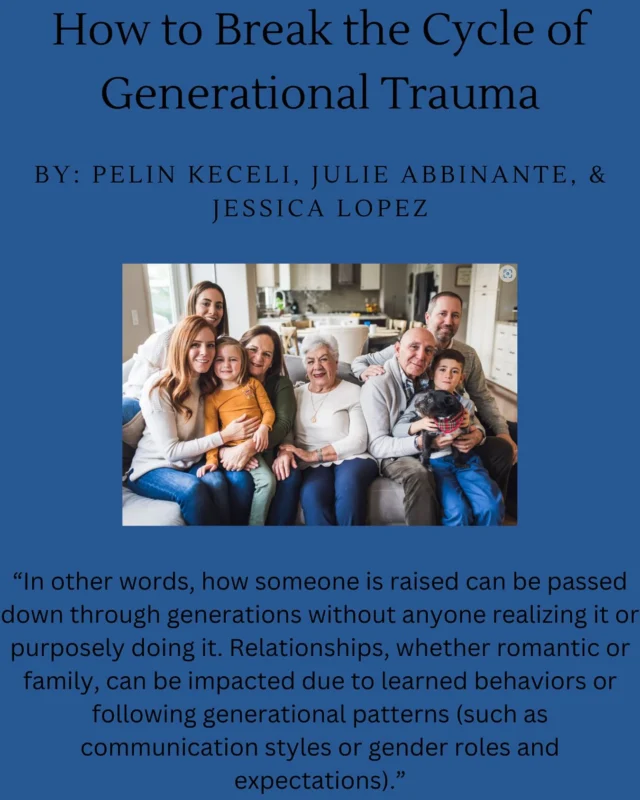Every new mom can relate to the infamous postpartum days. The daily struggles of breast milk-stained shirts, sleepless nights, and excessive worrying become the new norm. Intrusive thoughts about keeping your baby safe inundate your delirious, sleep-deprived brain to the extent that you start to question your sanity. You become immersed in excessive worry. The one question no new mom is excessively asking is, “What about my sex life with my husband?!?” Alternatively, every husband is obsessing over this very same question. They’re more than likely counting down the days until that postpartum 6-week checkup when the doc says those lifesaving words, “You’re cleared for sex.” So why do some men see that as a green light to seek out a pre-pregnancy sex life? More importantly, why do women have a hard time communicating that while sex and intimacy are paramount in a healthy relationship, it’s not a high priority right now? However, as uncomfortable as it may be, this conversation should never be put on the back burner. It is the barometer of how healthy the relationship is.
What becomes of a couple’s sex life postpartum? One research study indicated that 84% of couples reported reduced frequency of sexual intercourse at four months post-partum. (Hyde et al., 1996). For women, some studies have shown that there are significant factors affecting a decrease in sexual desire postpartum. Relationship satisfaction, depression, breastfeeding, fatigue, and dyspareunia (painful intercourse) are contributing factors to a mother’s decline in sexual desire at six months postpartum (De Judicibus & McCabe, 2002). This could be primarily due to the demands of a 6-month-old baby compared to a newborn, as the demands are much higher now.
Conversely, if men aren’t careful or tactful in approaching their partner with whom they’ve found to be almost unrecognizable these days, their wives could resort to “relationship catastrophizing.” If couples aren’t aware of the detrimental effects this can have on their sex life, they’re headed for a sex-starved marriage. Why is relationship catastrophizing so dangerous, and how can this be avoided?
What is Relationship Catastrophizing and How does it Impact Sexual Well-Being?
I distinctly remember the night my husband told me to relax after several futile attempts at both of us rocking our newborn back to sleep. In retrospect, he was right. I had emerged from our nursery to find him peacefully sleeping on his La-Z-Boy. In a state of sleep-deprived delusion, I vehemently rambled on about sleep deprivation and relationship inequality. We are lucky enough to look back and laugh about those days now. However, I wondered if these were famous last words of husbands in past postpartum hell. For a few days that followed, I was guilty of “relationship catastrophizing,” and I learned quickly that I needed to change my perspective to avoid the demise of our relationship.
Women in their postpartum days tend to magnify the adverse events in their relationship while dismissing the positive. This is called relationship catastrophizing which is common among women in the first few postpartum months. Alleviating the strain this can put on marriage requires emotional regulation, and most importantly empathy. How partners regulate their emotions can catalyze the demise or strengthening of their marriage.
Studies show that birthing partners report less sexual desire and relationship satisfaction when the mother or birthing parent resorts to relationship catastrophizing daily (Wang et al., 2024). Studies also show that women’s greater sexual well-being is positively associated with strategies characterized by adaptive engagement (e.g., problem-solving, acceptance, reappraisal) and negatively associated with strategies characterized by disengagement (e.g., avoidance, suppression, distraction) and aversive cognitive perseveration (e.g., worry, rumination) (Dube, 2020).
In other words, feelings have a tricky way of following our thoughts. If you apply a negative meaning to something, such as a fight with a friend or partner, you will likely harbor resentment and anger toward that person. However, if you’re looking at this as an opportunity for personal growth, such as admitting fault, you’re more apt to have a positive outlook on the outcome. The same concept applies to your perception of your marriage or partnership. As the saying goes, misery loves company. Most people fail to realize that they have the power to change the narrative. You’d be surprised at how much growth you can find from that.
How Much Sex Should You Be Having?
When my husband raises this topic, I usually respond sarcastically, “I prefer quality over quantity.” However, having these conversations with your partner is essential rather than dismissing them or moving your partner’s needs to the back burner. In marriages, a majority of husbands report less sexual desire and decreased relationship satisfaction when their needs are not met (Carasso & Segel-Karpas, 2024).
Is there a magic number about sexual frequency? The answer is that it’s specific to each couple. It is dependent upon what stage you’re at in your relationship or what both of your needs are. For example, couples report less sexual frequency within the first year postpartum yet find their groove again as their kids grow (Lurie, 2013).
However, why is it sometimes difficult for some couples to get back to their pre-baby days when sex was just as frequent as your daily chores? And why does it become a chore for some? As Michelle Weiner-Davis so eloquently states in her Tedx Talk, “The sex-starved marriage,” it’s important to stay friends and always be able to show vulnerability. If vulnerability is shot down, this can lead to contempt and anger, a proverbial bullet to end an already wounded marriage. The message to the sexually anorexic birthing partner is to be more attentive and empathetic to the mother’s needs, which in turn will turn her on. And parents everywhere would benefit from the Nike philosophy, “just do it.” While this doesn’t necessarily mean to revert to the Renaissance days when wives were submissive, it is essential to take the steps needed to enjoy yourselves again in the bedroom. So many testimonials from marriage and family therapists have shown that most women allow external stressors to consume their everyday lives. We tend to forget that sex can be enjoyable! However, it takes both sides to adopt the “we” mentality and decide to work together to reach that common goal.
What Can You Do to Keep the Connection Strong?
Date nights are essential for couple connection. Get creative with planning dates instead of always relying on the cliché movie and dinner date. Studies have shown that trying new things together can increase sexual desire and sexual satisfaction in the bedroom. Also, sex doesn’t have to always be spontaneous to be satisfying. Recent research indicates that planned sexual activity can be just as satisfying as spontaneous sex. My husband and I love cooking and recently decided to start a garden together. Most days in the summer, we call or text throughout the day with new ideas for a better harvest in the fall. It reminds us that we can see the fruits of our labor together and accomplish some pretty incredible things. This alone can keep things new and exciting.
Intimacy is imperative in keeping the relationship connection strong. While intimacy is multidimensional, it’s formally defined as the level of commitment and positive affective, cognitive, and physical closeness one experiences with a partner in a reciprocal relationship (Moss, 1993). It doesn’t only happen in the bedroom. It’s a way in which a partner is shown commitment by allowing vulnerability to show. In order for connection to happen, we have to allow ourselves to be seen as we’ve previously stated in this blog. It’s holding hands, cuddling, self-disclosure, and so much more. It’s a passionate kiss after a long, hard day. It’s intently listening to your partner’s needs, letting them know you can be trusted with their deepest secrets, and still loving them despite that. Couples do not fall out of love. They make an active decision to stop loving, which causes a loss in connection and intimacy.
We have written extensively about the importance of communication on this blog. Research has become ever clear about the importance of healthy sexual communication and how it is linked to relationship satisfaction. The ability to communicate effectively is regarded as central to the establishment of a good marital relationship (Esere, 2014). Unfortunately many couples struggle to communicate about sex, even though sexual activity is an essential component for most healthy marriages. Ineffective communication is the pathway to an unstable marriage. Communicate feelings and concerns with a pragmatic approach so as not to come off as threatening or accusatory. Show empathy and understanding when your partner addresses something with you.
The Sound Relationship House Theory
Drs. John and Julie Gottman, are world renowned psychologists researching marital stability and divorce prediction. In the Gottman’s Sound Relationship House Theory, they focus on the 7 principles crucial to a happy and healthy marriage. They include:
- Build Love Maps
- Sharing Fondness and Admiration
- Turn Towards Instead of Away
- The Positive Perspective
- Manage Conflict
- Make Life Dreams Come True
- Create Shared Meaning
Holding the Sound Relationship House together are the crucial pillars of trust and commitment in the relationship. For couples to have a healthy and satisfying sexual relationship, focusing on building more trust and commitment in the relationship is key. This is especially true after the baby arrives.
Conclusion
While some may argue that marriage shouldn’t take much work, successful marriages are built on commitment, trust, empathy, and intimacy. It is essential to learn to recognize and appreciate your partners perspective. This is especially important if you are hoping to improve the sexual aspect of your relationship. Ensuring your partner is heard, and their needs are met takes practice and doesn’t happen overnight. Intimacy is one element that sets the foundation for a successful marriage and should be at the forefront of developing one. A healthy sex life should naturally fall into place when needs are nurtured.
Unfortunately, gone are the days of leisurely strolling into your favorite place at 11 a.m. for Mimosas and Sunday brunch to satiate your sex-induced hunger from the night before. Most fail to realize that you can and will return to this place someday after the postpartum dust clears. While it may seem like an impossible distance between yourself and your partner in this chaotic time, you will find each other again. It just takes the desire to work at it.
References
-
- Carasso, E. & Segel-Karpas, D (2024). Marital Strain and emotional intimacy in midlife couples: The moderating role of empathy. Personal Relationships, 1-16.
- De Judicibus, M. A. & McCabe, M. P. (2002). Psychological Factors and the Sexuality of Pregnant and Postpartum Women. The Journal of Sex Research, 39(2), 94–103.
- Dubé, J.P., Dawson, S.J., & Rosen, N.O. (2020). Emotion Regulation and Sexual Well-being Among Women: Current Status and Future Directions. Curr Sex Health Rep 12, 143–152 (2020).
- Lurie, S., Aizenberg, M., Sulema, V., Boaz, M., Kovo, M., Golan, A., & Sadan, O. (2013). Sexual function after childbirth by the mode of delivery: a prospective study. Archives of Gynecology and Obstetrics, 288(4), 785–792.
- Moss, B. F., & Schwebel, A. I. (1993). Defining Intimacy in Romantic Relationships. Family Relations, 42(1), 31–37.
- Esere, M. O., Yeyeodu, A.-, & Oladun, C. (2014). Obstacles and Suggested Solutions to Effective Communication in Marriage as Expressed by Married Adults in Kogi State, Nigeria. Procedia – Social and Behavioral Sciences, 114, 584–592.
- Wang, G. A., Dawson, S. J., Huberman, J. S., & Rosen, N. O. (2024). Daily and longitudinal associations between relationship catastrophizing and sexual well-being in the postpartum period. Journal of Social and Personal Relationships, 41(7), 1703–1726.
- Weiner-Davis, M. (2014, April 29). The sex-starved marriage. TEDx Talks. YouTube.
Discover more from Decide To Commit
Subscribe to get the latest posts sent to your email.











